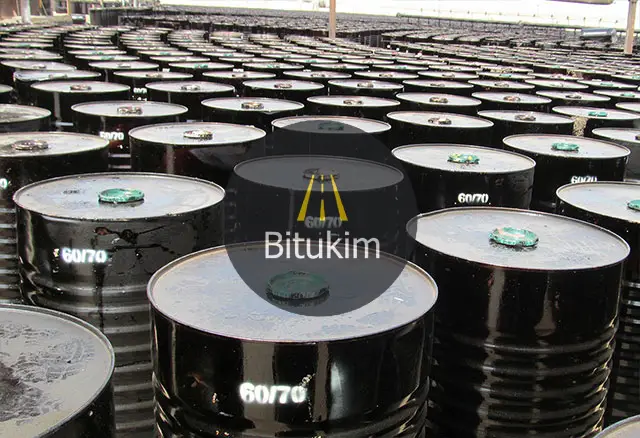Bitumen 60/70 Specifications: Technical Data and Standards

Introduction Bitumen 60/70 Specifications
Bitumen 60/70 is a commonly used grade of bitumen in road construction and asphalt production, known for its specific physical and chemical properties. This grade is essential for creating durable and high-performance road surfaces. Understanding its specifications, technical data, and industry standards is crucial for engineers, contractors, and construction professionals who use this material in various applications.
Bitumen 60/70 Specifications
- Penetration:
- Definition: Penetration measures the hardness of bitumen. It is determined by the depth in tenths of a millimeter that a standard needle penetrates into a sample of bitumen under specified conditions (25°C, 100 grams load, for 5 seconds).
- Value for Bitumen 60/70: The penetration value for Bitumen 60/70 typically ranges from 60 to 70 dmm (decimals of a millimeter). This indicates that Bitumen 60/70 is relatively hard compared to softer grades.
- Viscosity:
- Definition: Viscosity measures the resistance of bitumen to flow. It is an indicator of how the bitumen will perform at different temperatures and conditions.
- Values for Bitumen 60/70: This grade usually has a dynamic viscosity range that suits hot mix asphalt production, ensuring appropriate workability and stability.
- Softening Point:
- Definition: The softening point is the temperature at which bitumen becomes sufficiently fluid under specified conditions.
- Typical Range: For Bitumen 60/70, the softening point is usually between 45°C and 60°C. This ensures that the bitumen remains workable and can be effectively applied in hot mix asphalt.
- Ductility:
- Definition: Ductility measures the ability of bitumen to deform without breaking under tension. It is assessed by stretching a sample of bitumen until it breaks.
- Value for Bitumen 60/70: Bitumen 60/70 typically has a ductility value of at least 50 cm, indicating good flexibility.
- Flash Point:
- Definition: The flash point is the temperature at which bitumen emits enough vapor to ignite in the presence of a flame.
- Value for Bitumen 60/70: This is generally high (above 230°C), ensuring safety during storage and handling.
- Specific Gravity:
- Definition: Specific gravity is the ratio of the density of bitumen to the density of water.
- Typical Range: Bitumen 60/70 usually has a specific gravity around 1.01 to 1.02.
Industry Standards Bitumen 60/70
- ASTM Standards:
- ASTM D 6373: Standard Specification for Performance-Graded Asphalt Binder, which outlines the requirements for performance-grade asphalt, including Bitumen 60/70.
- ISO Standards:
- ISO 9001: Quality management standards that ensure the bitumen meets the necessary quality criteria during production.
- ISO 15156: Specifications for bitumen used in various applications, ensuring compliance with international standards.
- European Standards:
- EN 12591: European Standard that specifies the requirements for bitumen used in road construction, including grades like 60/70.
- Local Standards (e.g., UAE Specifications):
- UAE Standards: Local standards may define additional requirements specific to the regional climate and road construction practices in Dubai and the UAE.
Applications of Bitumen 60/70
- Road Construction:
- Bitumen 60/70 is commonly used in hot mix asphalt for constructing roads, highways, and pavements. Its hardness and performance characteristics make it suitable for various traffic conditions.
- Asphalt Production:
- It is used to produce asphalt mixes that offer durability and resistance to deformation under heavy traffic loads and varying temperatures.
- Paving Projects:
- Ideal for both urban and rural paving projects, Bitumen 60/70 ensures a long-lasting surface that can withstand the harsh conditions often experienced in Dubai’s hot climate.
Conclusion
Bitumen 60/70 is a versatile and widely used bitumen grade characterized by its specific penetration range, viscosity, softening point, and ductility. Adhering to international and local standards ensures that Bitumen 60/70 meets the performance requirements for road construction and asphalt production. Understanding these specifications helps professionals make informed decisions about its application and ensures the longevity and quality of asphalt surfaces.

